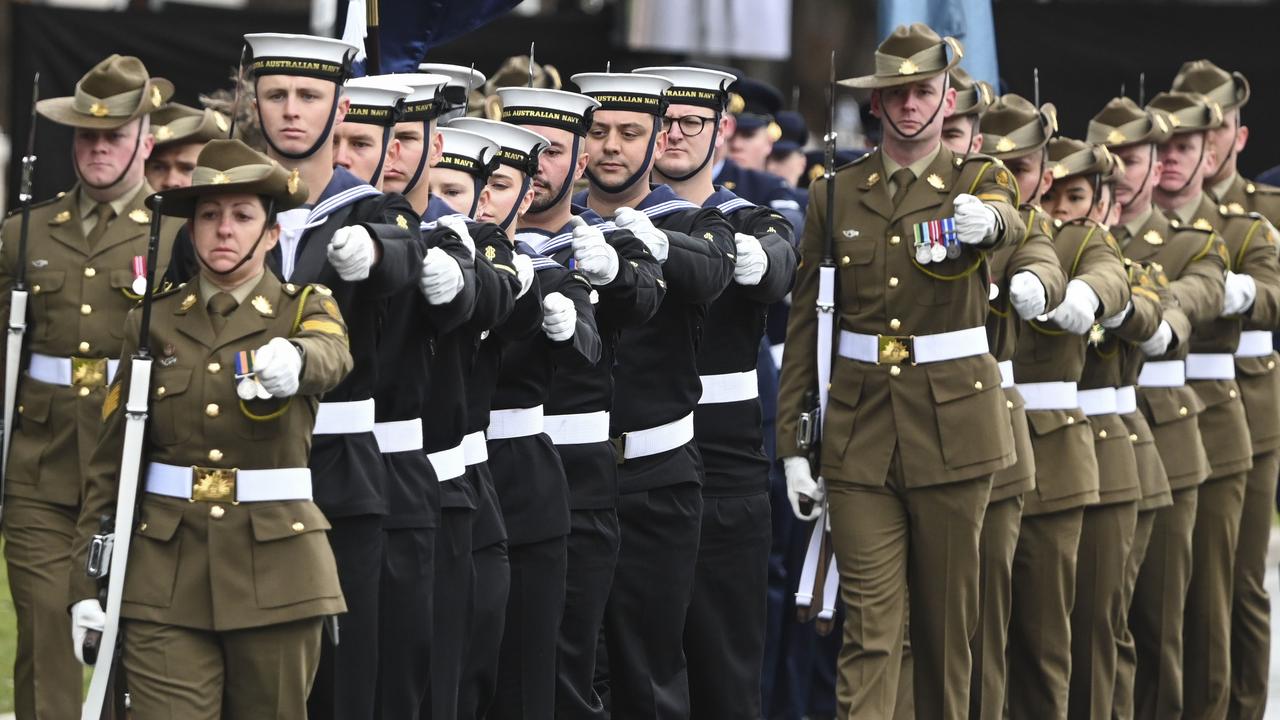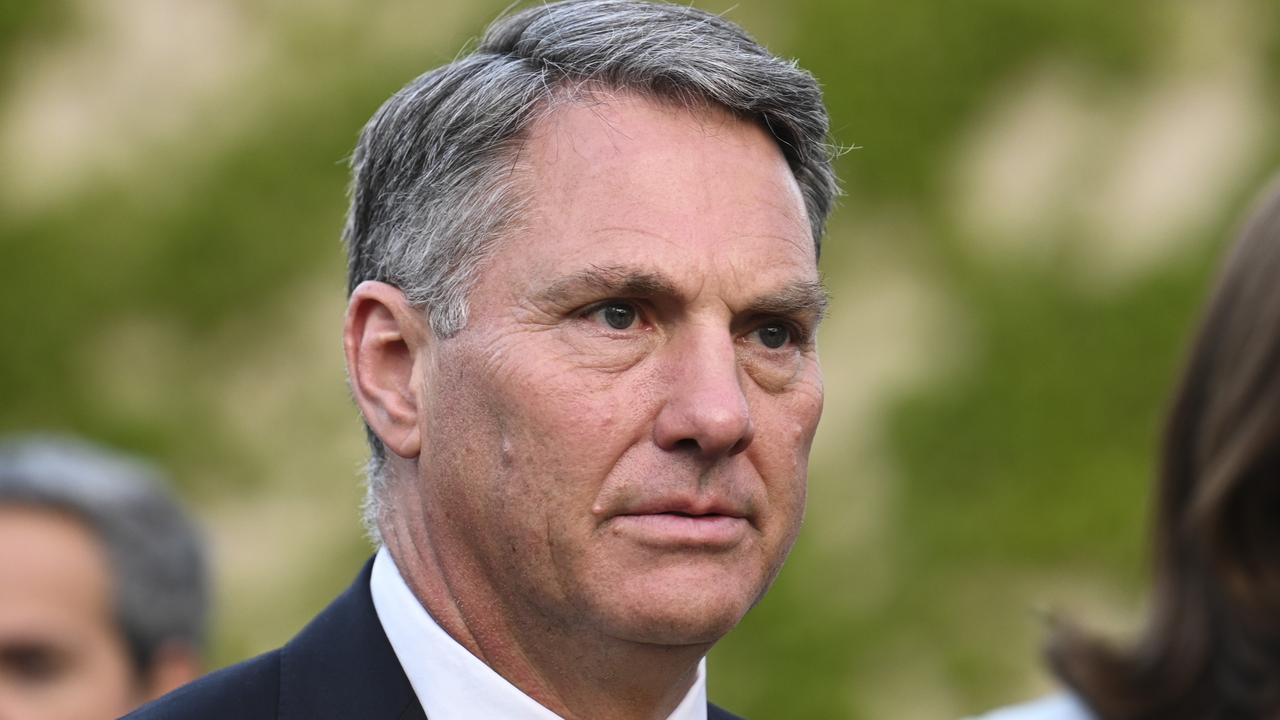Defence Minister Richard Marles announced $600m boost to double ADF hires and improve retention
More junior Australian Defence Force personnel will soon be able to access a $40,000 bonus to increase the recruitment and retention of Australia’s military.
An extra $600m will provided to help Defence attract and keep staff, following the release of a major report which found it needs to nearly double its annual intake over the next decade.
The 2024 Defence Workforce Plan, to be released on Tuesday, will outline workforce growth targets in order for the ADF to reach its target of 69,000 personnel by early 2030, and a combined ADF and public service target of about 100,000 by 2040.
“The highly competitive national labour market across all sectors and record low levels of unemployment will continue to put pressure on Defence’s ability to attract and retain the right people,” the report said.
“To stabilise, remediate and grow the permanent ADF workforce, the inflow must increase from approximately 5500 per annum to 9000 per annum over the coming decade.
“In parallel, the median length of permanent ADF service must increase from around seven years to around 12 years.”
The Albanese government said the $600m funding would help achieve that.
“Our ADF personnel are our greatest capability, which is why it is crucial that the Defence workforce has the people it needs to help protect Australia’s strategic interests,” Defence Minister Richard Marles said.
“The 2024 workforce plan will help ensure Defence can recruit, retain and grow the highly specialised and skilled workforce required to meet its capability needs.
“The Albanese government is committed to making the necessary investments to support our current Defence workforce, and grow it for the future.”
Tuesday’s new $600m in funding will include an expansion of the two-year $50,000 continuation bonus pilot for junior rank permanent forces staff, plus additional investment to meet the target for operational reservists.

Personnel are able to access the bonus if they remain in the force for an extra three years after they complete their initial four-year initial service obligation.
While the bonus incentive will be reduced to $40,000 to cater for the expansion from the 2025-26 financial year, the scheme will be extended to eligible permanent members who are at the end of their initial four-year service obligation.
A second cohort of members approaching the seven to nine year service period will also be allowed access the initiative in order to boost career progressions into the ADF’s middle ranks and continued service.
The Defence workplace plan says the Continuation Bonus has recorded an uptake rate of nearly 80 per cent, and boosted the continued service of more than 3100 junior rank ADF personnel.
“These retention bonuses are short-term initiatives to alleviate pressure on the ADF’s junior and middle ranks, and address hollowness in the force,” it states.
Defence Personnel Minister Matt Keogh said the initiatives would help deliver “lasting institutional change to improve Defence culture and the health, safety and wellbeing of our people and ADF families”.
“The Defence Workforce Plan details a transformation and sets out how we will deliver the right number of people with the right skills, while continuing to shape a positive and effective work environment for our people,” he said.
In figures detailed in the 2024 budget papers, the total ADF workforce strength was estimated to be at 76,290 in 2023-24, with the estimated ADF permanent force for 2024-25 expected to be at 58,600, nearly 5000 personnel below the budgeted amount.
Difficulties in hiring were linked to high separation rates and lower-than-expected achievement of recruitment targets.
ADF reservists will also need to be increased by 1000 by 2030, to improve the “readiness of the Navy, Air Force, and Joint Capabilities Group”.

On Tuesday, Mr Marles will also announce an extra $14m to boost Ukraine’s maritime and coastal defence capabilities through 14 rigid hull boats.
Since Russia illegally invaded Ukraine on February 22, 2022, Australia has provided Ukraine more than $1.3bn in military support, plus an additional $1.5bn in support to its government.
Mr Marles reiterated Australia’s “proud” ongoing support to the Eastern European country.
“Australia remains firmly committed to supporting Ukraine in its fight against Russian aggression. This is in Australia’s interests, and is the right thing to do,” he said.
“Ukraine has demonstrated its ability to thwart Russia’s continued attacks from the Black Sea.




